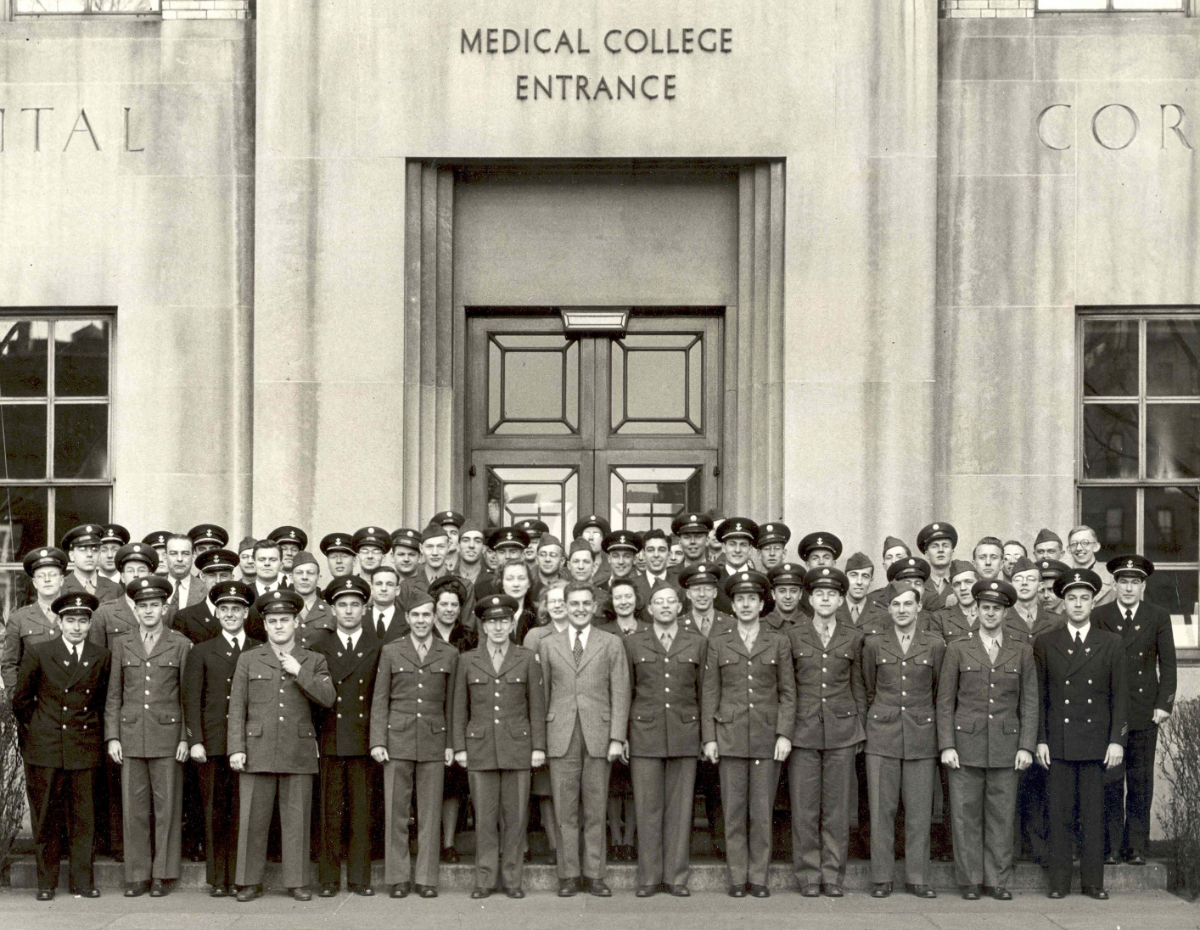By on April 7, 2020 - 4:08pm

In response to the growing threat of COVID-19, medical schools throughout New York have provided fourth-year medical students with the option to graduate early. While this choice to accelerate commencement may appear unprecedented, it is not the first time Weill Cornell Medicine has needed to fast-track the education of students to serve the clinical needs of others! Throughout its history, Weill Cornell Medicine has been faced with major challenges that have forced not just the administration, but also the student body, to rise above and overcome significant obstacles.
One important example comes from World War I, when Weill Cornell Medicine (then Cornell University Medical College or CUMC) responded to the nation’s entry into the war in 1917. Much like the Class of 2020, the Class of 1918 was called to action amid a crisis! The medical college rearranged the curricula in order to quickly supply the war effort with more physicians. According to the medical college’s 1918 Announcements (digitized by the Medical Center Archives and made available online here), in addition to providing medical faculty for military service, the college provided summer instruction in 1917 in order to allow students to graduate by January 1918. Most of the 110 fourth-year medical students enrolled at CUMC at the time all graduated early and served as members of the Naval Reserve Force Hospital Corps or the Enlisted Medical Corps of the Army.
CUMC students responded yet again to a crisis during World War II! Less than two decades after World War I, the United States found itself embroiled in yet another international conflict. After the Japanese attack against Pearl Harbor in December 1941, the United States entered World War II and, once again, the military was in dire need of medical personnel. In order to help the war effort, much like in 1917, in July 1942, CUMC made the decision to offer a year-long accelerated program that would allow students to complete their medical studies in three years, rather than four years. Additionally, as a means of producing more physicians, CUMC class sizes were increased by 6%.
On March 29, 1943, the first cohort of CUMC students completed the accelerated program and graduated early. Understanding the urgency of the situation, they decided to cancel their commencement ceremony, skipping a celebration, and instead prepared for internships scheduled to start two days later.
The common expression “extraordinary circumstances require extraordinary measures” can be used to describe not just Weill Cornell Medicine’s current response to COVID-19, but also its past responses to major crises. Weill Cornell Medicine faculty, staff, and students have demonstrated a pattern through the school’s history of rising to the occasion when crisis calls for it – all in an attempt to help others.
Photograph: Class of December 1943.
This blog is part of a new series from the Medical Center Archives of NewYork-Presbyterian/Weill Cornell Medicine entitled “Courage Under Crisis,” demonstrating the medical center’s role in previous crises. Due to current social distancing recommendations, research for this series relies in large part on digitized archival publications and images available online, as well as reliable secondary sources such as the 2016 publication Weill Cornell Medicine: A History of Cornell’s Medical School by Antonio M. Gotto, Jr., MD and Jennifer Moon.
Blog Category: Courage Under Crisis




